
Some of Britain’s biggest grocery brands are fading fast. In just five years since The Grocer’s first-ever survey of Britain’s Biggest Brands, 17 have dropped out of our top 100, including Dolmio, Special K, Goodfella’s, Daz, Quality Street and Bernard Matthews.
Read the full list of Britain’s Biggest Grocery Brands 2013.
The causes vary, and consumer tastes will always change, but clearly the pressure on Britain’s Biggest Brands is intense, with recession and commodity inflation coinciding with some dramatic changes in media consumption: from a proliferation of TV channels, to new digital media such as Facebook and Twitter.
Yet some brands have continued to prosper. Led by the £56m growth recorded by Innocent (25), McCain (19), Walkers (2), Quaker (70) and new entry Rustlers (99) have all defied the gloom to turn in impressive double-digit, multimillion-pound growth. So how have they managed to cut through the fog of recession to remain distinctive and relevant to shoppers?
In every discussion surrounding Britain’s Biggest Brands, two concerns have been near constant in the past five years: the rise of own label, and the increasing use of promotions to counter them, with 40% of branded sales on deal last year, according to Nielsen, a staggering increase from 2008’s figure of 27%.
Used in the right way, however, selling on deal is an important tool in the successful brand’s armoury, especially when the economy is in the doldrums. And Innocent’s phenomenal growth in fruit juice couldn’t have been achieved without promotions. Up to 70% of its juice lines have been on deal, admits Dave Pickup, commercial director at Innocent. “We’ve been using a combination of deep-cut promotions on gondola ends to drivepenetration, and shallower multibuys on the fixture to drive weight of purchase,” he explains.

The promotions tool cannot be used in isolation, however. The unique packaging design, investment in TV and poster-based advertising, the extension of Innocent’s juice range from five to 15 SKUs and major distribution wins have also helped drive Innocent’s 36.3% growth, says Pickup. “All of those factors have worked together to deliver growth.”
Read this: Britain’s Biggest Grocery Brands: Notes and Methodology
A sophisticated approach to promotions is vital, agrees Ian Forshew, commercial director for grocery at Pepsi (10) bottler Britvic. “Key to Pepsi’s £24.2m growth has been a series of well-executed shopper deals with strong consumer appeal,” he says. “Led by Pepsi Max, these included linked-purchase deals with Doritos, which tapped into seasonal occasions and events, and cross-portfolio promotions.”
Pepsi’s success has actually come despite reducing advertising. And just as promotions on their own can undermine a brand, simply ramping up ad spend without having a relevant, distinctive product to sell at the right price will not result in an improvement in sales, as the table below shows. McCain’s impressive £51.7m (or 29%) sales gains have been made with the aid of a 137% increase in ad spend. A 60% increase in ad budget also helped Heinz increase soup sales by almost £20m.
Two concerns have been near constant in the past five years: the rise of own label, and the increasing use of promotions to counter them
But ad spend hikes of 76% and 61% for Tropicana and Robinson’s could not prevent £30m and £23m declines over the period respectively. And just as there are well-publicised examples of brands successfully reining in promotions, commodity-based brands Lurpak (12), and Cathedral City (15) increased sales by £17.7m and £37.4m while cutting back on advertising.
The approach has to be holistic, says Giles Turrell, CEO of Weetabix (64), which achieved almost £10m in extra sales last year. “For us it starts with having a great-tasting, nutritious cereal. Then we innovate with products like Weetabix Golden Syrup, Alpen Porridge Pots or Ready Brek Sachets. And then we back it up with marketing. We increased our marketing spend by 20% last year and we will increase it by a similar amount this year.
Read this: Britain’s Biggest Brands: Fantastic stewardship
All the fastest growers have shown their innovative sides: Walkers (2) puts much of its growth down to its new Ridged and Baked Stars varieties; Heinz Soup (17) has a lot to thank its Squeeze & Stir NPD for; and credit to Warburtons (3) and Kingsmill (7) who have limited the effects of promotions on white sliced with a barrage of value-added NPD. As a result, volume sold on deal across baked goods has actually declined in the past five years, says Mark Fairweather, CEO of Kingsmill-owner Allied Bakeries. “Innovation is an important part of what we do. We believe in introducing the right products for our consumers. We are therefore investing in consumer understanding and making sure our products meet the needs of our target consumer groups.”
And to back up NPD such as its new Fruit & Fibre variants, Kingsmill will be on TV for 30 weeks of 2013, Fairweather adds.
Social media
But splashing out on prime-time TV advertising these days is not enough. For all the extra millions spent on TV by Walkers, social media took more of its marketing budget, with the Walkers What’s That Flavour? campaign featuring heavily on Facebook.
And while Heinz increased its spend on Heinz soup by 60%, it supported this with social media-based initiatives such as its personalised Get Well soup programme, generating “huge talkability” according to Heinz UK president Matt Hill, and has committed 20% to digital media.
Weetabix is going even further, increasing digital spend from nothing five years ago to about 30% today, says Turrell. And the migration looks set to continue. “It’s not about cost, it’s about effectiveness,” he adds. “The most important thing is being where the shoppers are. And they’re spending more time online.”
For all the extra millions spent on TV by Walkers, social media took more of its marketing budget, with the Walkers What’s That Flavour? campaign featuring heavily on Facebook
None more so than younger consumers of brands such as Rustlers and Red Bull (16), both of which have been paying social media growing attention. “The joy of having such a well-defined audience (16 to 34-year-old men) is that you can get the creative work right,” says Jon Armstrong, CEO of Rustlers’ parent company Kepak, pointing to the brand’s notorious Fit as a Butcher’s Daughter campaign - some ads in the campaign were banned by the ASA for “objectifying women” - which helped send sales surging 27.4% last year.
Sex sells, clearly. Especially if you’re selling to young men. So do extreme sports, if the £14.8m in extra sales of Red Bull (16) are anything to go by. While TV remains central to Red Bull’s marketing plans, head of category marketing Simon Hewitt says online content, such as films featuring cyclist-cum-acrobat Danny MacAskill and stratospheric skydiver Felix Baumgartner, is of increasing importance.
“Our social spend has certainly increased,” he says. “The Way Back Home video (starring MacAskill) generated 25 million YouTube views because it’s amazing content with an aspirational athlete, and with high-quality production values. Everything we do should communicate the Red Bull message, whether through events, athletes, artists or skydivers. Digital is an increasing focus as this is where our audience spend their time.”
Route to market
Success also rests on getting your physical product where your consumers are. And with growing numbers using convenience channels, Britain’s Biggest Brands are adapting their offers to suit. Weetabix’s new breakfast biscuits, launched in January, are aimed at those who grab breakfast on the run. It will overtrade strongly in c-stores, says Turrell, adding that the brand has seen strong growth in smaller pack sizes in this channel.
Quaker puts much of its growth down to a similar focus, with its Oats So Simple pots being a particular success story.
New listings in c-stores, primarily in London, have been key to Rustlers’ growth, too. But once the brand was on shelf, it needed backing up with strong promotions, says Armstrong, such as linked deals with crisps, currently running with the Co-operative. “The main thing for us with promotions is getting the visibility and ensuring we’re shouting louder than Pot Noodle and Ginsters, who are our competitors but not necessarily next to us on shelf,” he says.
In other words, without a relevant product, promoted well and in the right place, even the best deals won’t cut the mustard with consumers - and will have no chance of surviving as one of Britain’s Biggest Brands.
The full list of Britain’s Biggest Brands 2013:
| 2012 | 2011 | Sales MAT to 29/12/12 £m | £m | % | |
| 1 | 1 | COCA COLA | 1,153.9 | 9.7 | 0.8 |
| 2 | 3 | WALKERS CRISPS | 724.4 | 51.4 | 7.6 |
| 3 | 2 | WARBURTONS | 703.6 | 29.8 | 4.4 |
| 4 | 4 | CADBURY DAIRY MILK | 434.5 | 19.2 | 4.6 |
| 5 | 7 | NESTLE NESCAFE | 409.6 | 24.4 | 6.3 |
| 6 | 5 | HOVIS | 408.6 | -3.6 | -0.9 |
| 7 | 6 | KINGSMILL | 392.6 | 1.7 | 0.4 |
| 8 | 9 | LUCOZADE | 387.3 | 10.0 | 2.7 |
| 9 | 8 | ANDREX | 378.1 | 0.6 | 0.1 |
| 10 | 10 | PEPSI COLA | 352.3 | 24.1 | 7.4 |
| 11 | 13 | WHISKAS | 293.5 | 15.4 | 0.1 |
| 12 | 14 | LURPAK | 285.2 | 17.7 | 6.6 |
| 13 | 12 | ROBINSONS | 275.5 | -22.8 | -7.6 |
| 14 | 11 | TROPICANA | 272.7 | -30.3 | -10.0 |
| 15 | 21 | CATHEDRAL CITY | 252.2 | 37.4 | 17.4 |
| 16 | 18 | RED BULL | 235.8 | 14.8 | 6.7 |
| 17 | 20 | HEINZ SOUP | 234.8 | 19.6 | 9.1 |
| 18 | 15 | DANONE ACTIVIA | 233.3 | -10.8 | -4.4 |
| 19 | 28 | MCCAIN FROZEN POTATO | 228.9 | 51.6 | 0.3 |
| 20 | 23 | PERSIL | 227.4 | 17.5 | 8.4 |
| 21 | 16 | HEINZ BEANS | 227.3 | 0.4 | 0.2 |
| 22 | 17 | GALAXY | 227.3 | 5.7 | 2.6 |
| 23 | 19 | MULLER CORNER | 217.4 | 0.9 | 0.4 |
| 24 | 25 | FELIX | 215.9 | 11.7 | 0.1 |
| 25 | 34 | INNOCENT | 213.5 | 56.8 | 36.3 |
| 26 | 22 | PEDIGREE | 205.8 | -4.4 | 0.0 |
| 27 | 24 | FLORA | 203.8 | -5.8 | -2.7 |
| 28 | 26 | KIT KAT | 198.1 | 3.5 | 1.8 |
| 29 | 29 | EXTRA | 187.6 | 14.4 | 8.3 |
| 30 | 30 | ARIEL Laundry | 181.3 | 10.6 | 6.2 |
| 31 | 27 | YOUNGS FROZEN FISH | 173.3 | -17.3 | -0.1 |
| 32 | 39 | JOHN WEST | 167.0 | 17.4 | 11.6 |
| 33 | 33 | DORITOS | 162.0 | 5.0 | 3.2 |
| 34 | 31 | MR KIPLING | 160.6 | -5.1 | -3.1 |
| 35 | 32 | P G TIPS | 155.6 | -6.3 | -3.9 |
| 36 | 41 | MALTESERS | 154.0 | 10.6 | 7.4 |
| 37 | 36 | CRAVENDALE MILK | 151.5 | -2.8 | 0.0 |
| 38 | 35 | PRINCES | 150.8 | -5.5 | -3.5 |
| 39 | 38 | RIBENA | 150.0 | -0.9 | -0.6 |
| 40 | 48 | SILVER SPOON | 147.3 | 13.3 | 9.9 |
| 41 | 37 | PRINGLES | 145.3 | -7.2 | -4.7 |
| 42 | 51 | MULLER LIGHT | 143.7 | 17.2 | 13.6 |
| 43 | 46 | KRAFT KENCO | 143.6 | 9.1 | 6.8 |
| 44 | 50 | VELVET | 142.3 | 12.6 | 9.8 |
| 45 | 49 | SCHWEPPES | 137.4 | 5.3 | 4.0 |
| 46 | 44 | FINISH | 135.9 | -1.0 | -0.7 |
| 47 | 40 | BOLD | 135.6 | -9.5 | -6.6 |
| 48 | 47 | UNCLE BENS | 135.5 | 1.2 | 0.0 |
| 49 | 42 | DURACELL | 133.4 | -6.4 | -4.6 |
| 50 | 58 | VOLVIC | 132.5 | 17.2 | 14.9 |
| 51 | 43 | TETLEY | 130.9 | -6.3 | -4.6 |
| 52 | 45 | FAIRY Washing Up | 130.5 | -4.8 | 0.0 |
| 53 | 52 | LENOR | 129.6 | 6.7 | 0.1 |
| 54 | 61 | SURF | 125.6 | 13.3 | 11.8 |
| 55 | 54 | CADBURY BISCUITS | 124.8 | 4.3 | 0.0 |
| 56 | 53 | BAKERS | 123.1 | 2.1 | 0.0 |
| 57 | 57 | MCVITIES DIGESTIVES | 122.1 | 3.0 | 2.5 |
| 58 | 70 | MAGNUM | 121.7 | 19.3 | 0.2 |
| 59 | 55 | HEINZ TOMATO KETCHUP | 120.0 | -0.1 | -0.1 |
| 60 | 62 | FAIRY Laundry | 119.0 | 7.5 | 0.1 |
| 61 | 56 | FANTA | 116.4 | -3.4 | -2.8 |
| 62 | 64 | RICHMOND | 114.9 | 5.5 | 5.0 |
| 63 | 66 | HARIBO | 114.4 | 8.2 | 7.7 |
| 64 | 68 | WEETABIX | 114.2 | 9.8 | 9.4 |
| 65 | 77 | PHILADELPHIA | 113.9 | 14.4 | 14.5 |
| 66 | 63 | KLEENEX | 112.3 | 1.7 | 1.6 |
| 67 | 67 | MCCOYS | 112.2 | 6.9 | 6.6 |
| 68 | 104 | TATE & LYLE | 112.1 | 35.1 | 45.5 |
| 69 | 59 | AIR WICK | 112.0 | -0.6 | -0.5 |
| 70 | 92 | QUAKER | 108.2 | 21.6 | 25.0 |
| 71 | 65 | WISEMAN MILK | 108.1 | 1.7 | 0.0 |
| 72 | 81 | CHICAGO TOWN | 105.1 | 8.0 | 0.1 |
| 73 | 60 | DAIRYLEA | 105.0 | -7.4 | -6.6 |
| 74 | 75 | PETIT FILOUS | 103.8 | 3.6 | 3.6 |
| 75 | 79 | ANCHOR | 103.8 | 4.9 | 5.0 |
| 76 | 71 | EVIAN | 103.3 | 1.0 | 1.0 |
| 77 | 73 | DAIRY CREST MILK | 101.8 | 0.7 | 0.0 |
| 78 | 69 | GINSTERS | 101.7 | -1.8 | -1.8 |
| 79 | 76 | IRN BRU | 101.5 | 1.9 | 1.9 |
| 80 | 74 | HELLMANN’S MAYONNAISE | 101.3 | 0.2 | 0.2 |
| 81 | 72 | ACTIMEL | 101.2 | -0.9 | -0.9 |
| 82 | 78 | ROWNTREE | 99.8 | 0.7 | 0.7 |
| 83 | 83 | CLOVER | 98.7 | 5.9 | 6.4 |
| 84 | 82 | MARS | 97.1 | 4.1 | 4.4 |
| 85 | 80 | BIRDS EYE POULTRY | 96.9 | -0.4 | 0.0 |
| 86 | 86 | BISTO | 96.3 | 5.2 | 5.7 |
| 87 | 85 | KETTLE CHIPS | 94.8 | 3.5 | 3.8 |
| 88 | 94 | AUNT BESSIE’S POTATOS | 94.5 | 9.2 | 0.1 |
| 89 | 87 | TWININGS | 94.0 | 3.7 | 4.1 |
| 90 | 89 | BIRDS EYE VEGETABLES | 93.0 | 5.9 | 0.1 |
| 91 | 88 | GLADE | 91.5 | 2.6 | 3.0 |
| 92 | 91 | HULA HOOPS | 91.2 | 4.3 | 5.0 |
| 93 | 93 | CAPRI SUN | 90.6 | 4.5 | 5.3 |
| 94 | 97 | THORNTONS | 86.3 | 3.1 | 0.0 |
| 95 | 103 | SNICKERS | 85.4 | 7.6 | 9.8 |
| 96 | 98 | DR PEPPER | 85.1 | 1.9 | 2.4 |
| 97 | 95 | POT NOODLE | 84.3 | -0.3 | 0.0 |
| 98 | 113 | CADBURY TWIRL | 83.5 | 14.1 | 20.3 |
| 99 | 118 | RUSTLERS | 83.1 | 17.8 | 27.4 |
| 100 | 110 | PIZZA EXPRESS | 82.4 | 10.7 | 15.0 |









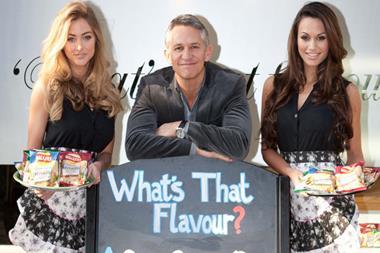
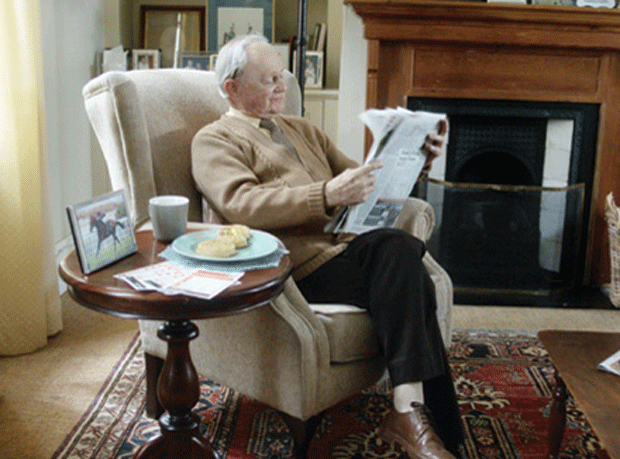
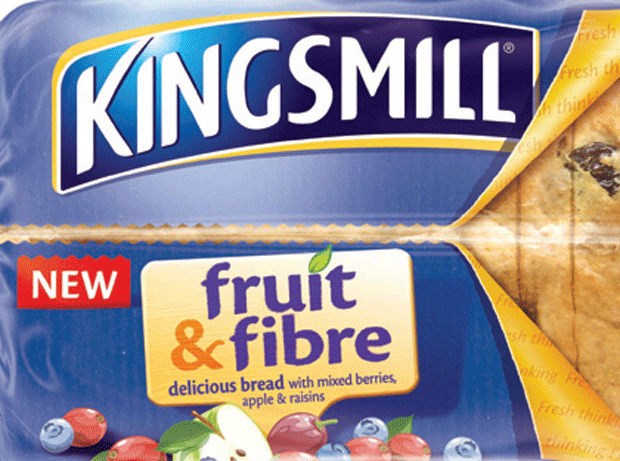
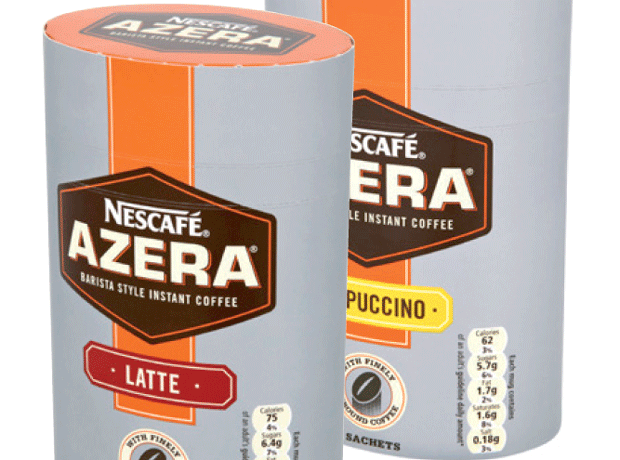
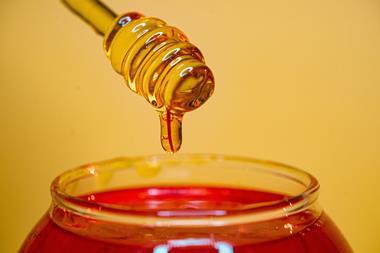
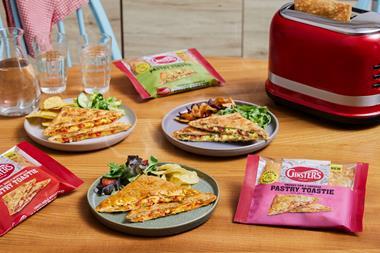
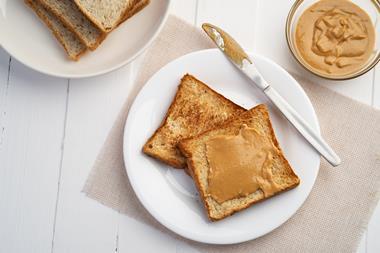
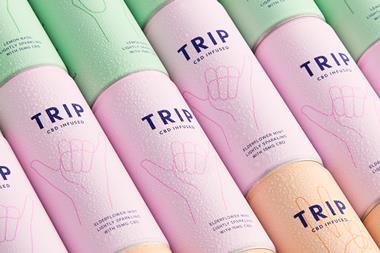
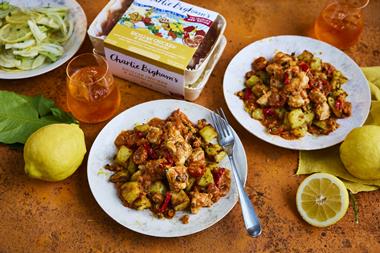
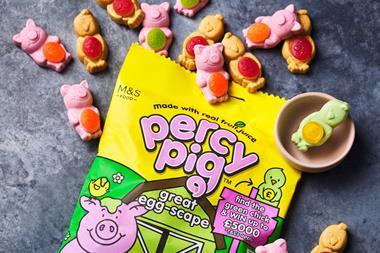
No comments yet